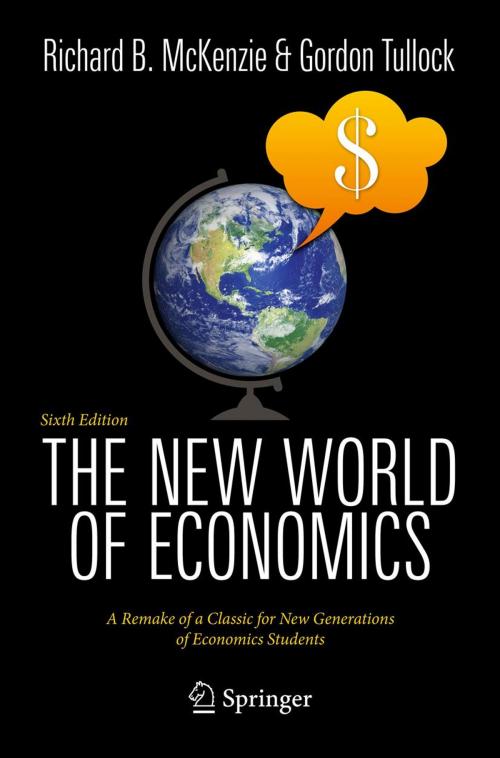The New World of Economics
A Remake of a Classic for New Generations of Economics Students
Business & Finance, Economics, Microeconomics, Nonfiction, Social & Cultural Studies, Political Science, Government, Social Policy| Author: | Richard B. McKenzie, Gordon Tullock | ISBN: | 9783642273643 |
| Publisher: | Springer Berlin Heidelberg | Publication: | May 16, 2012 |
| Imprint: | Springer | Language: | English |
| Author: | Richard B. McKenzie, Gordon Tullock |
| ISBN: | 9783642273643 |
| Publisher: | Springer Berlin Heidelberg |
| Publication: | May 16, 2012 |
| Imprint: | Springer |
| Language: | English |
The New World of Economics, 6th edition, by Richard McKenzie and Gordon Tullock, represents a revival of a classic text that, when it was first published, changed substantially the way economics would be taught at the introductory and advanced levels of economics for all time. In a very real sense, many contemporary general-audience economics books that seek to apply the “economic way of thinking” to an unbounded array of social issues have grown out of the disciplinary tradition established by earlier editions of The New World of Economics.
This new edition of The New World will expose new generations of economics students to how McKenzie and Tullock have applied in a lucid manner a relatively small number of economic concepts and principles to a cluster of topics that have been in the book from its first release and to a larger number of topics that are new to this edition, with the focus of the new topics on showing students how economic thinking can be applied to business decision making. This edition continues the book’s tradition of taking contrarian stances on important economic issues. Economics professors have long reported that The New World is a rare book in that students will read it without being required to do so.
The New World of Economics, 6th edition, by Richard McKenzie and Gordon Tullock, represents a revival of a classic text that, when it was first published, changed substantially the way economics would be taught at the introductory and advanced levels of economics for all time. In a very real sense, many contemporary general-audience economics books that seek to apply the “economic way of thinking” to an unbounded array of social issues have grown out of the disciplinary tradition established by earlier editions of The New World of Economics.
This new edition of The New World will expose new generations of economics students to how McKenzie and Tullock have applied in a lucid manner a relatively small number of economic concepts and principles to a cluster of topics that have been in the book from its first release and to a larger number of topics that are new to this edition, with the focus of the new topics on showing students how economic thinking can be applied to business decision making. This edition continues the book’s tradition of taking contrarian stances on important economic issues. Economics professors have long reported that The New World is a rare book in that students will read it without being required to do so.















